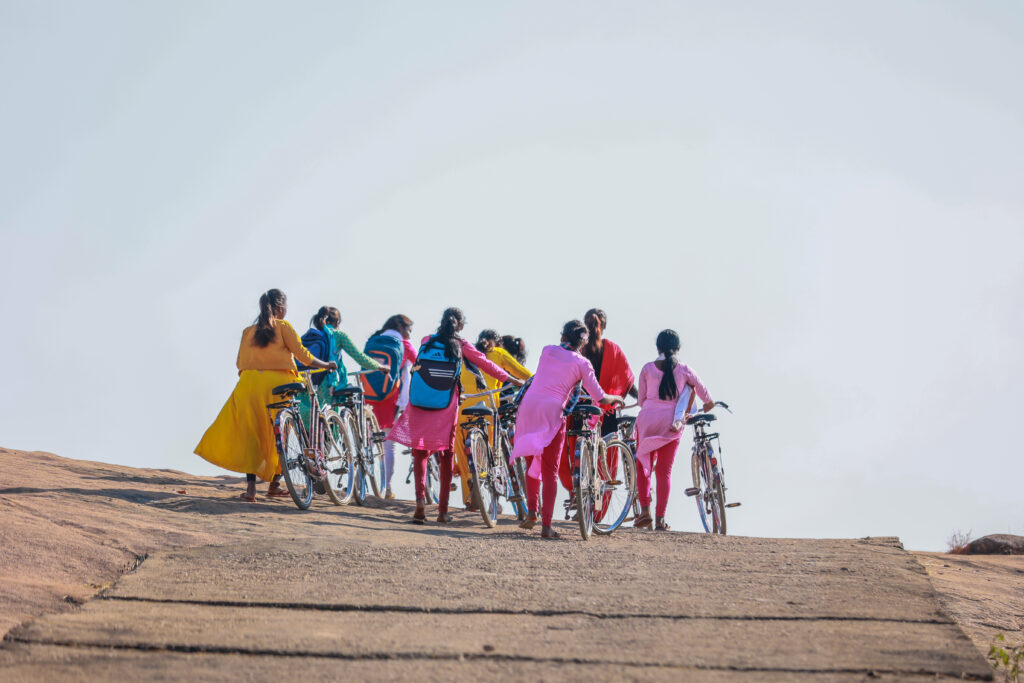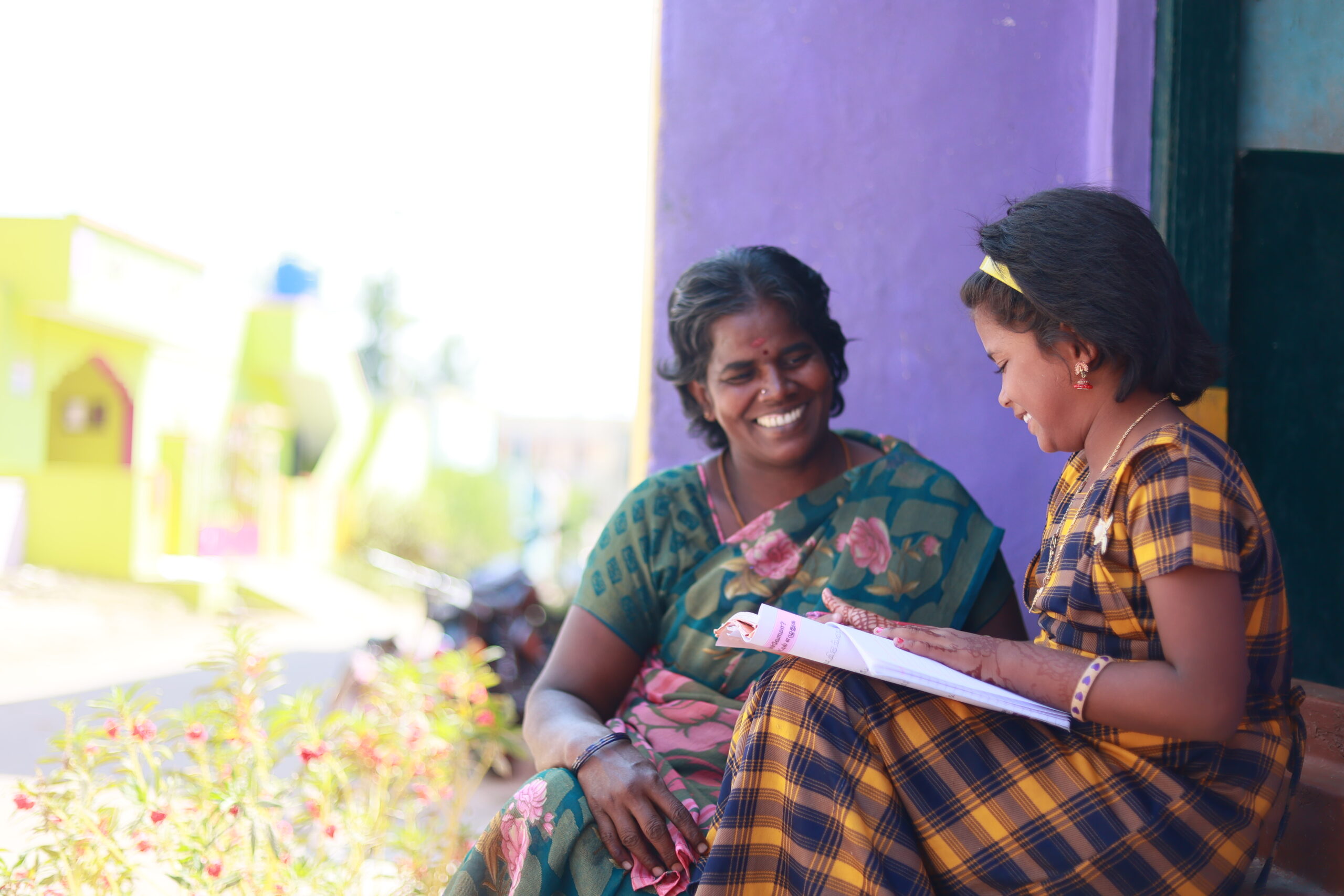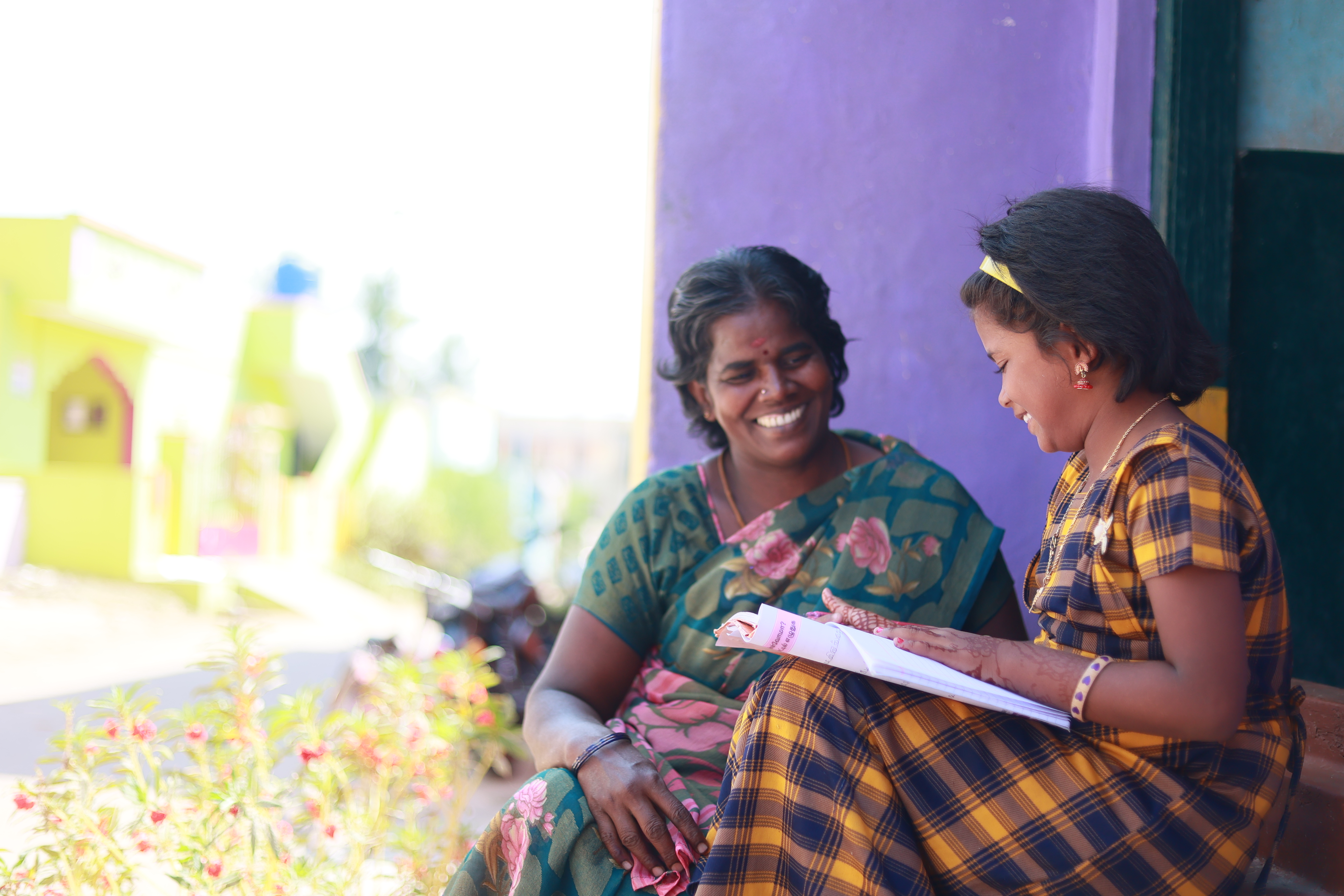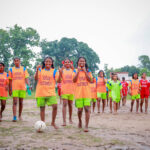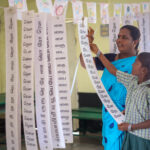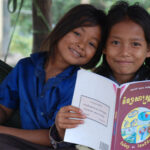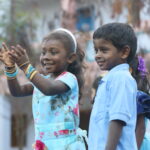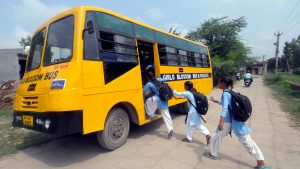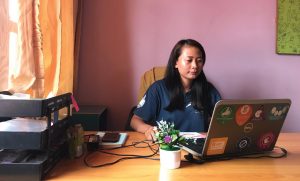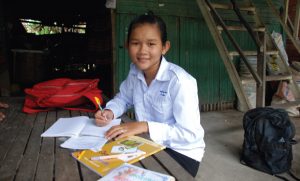Spotlight: Jharkhand Project, India

Jharkhand Project
Lotus Outreach International is partnering with our sister organization, White Lotus Trust (WLT), and a newly identified regional partner, Naya Sawera Vikas Kendra (NSVK), to develop a pivotal and multi-dimensional new Lotus Outreach project in India, serving vulnerable tribal groups in the Jharkhand (land of the forest) state of India. The project was initially established during 2022 with support from our partner, Humble Bundle, as well as with dedicated funds from our 1,000 Coffee project. Today, our vision has expanded to support many dimensions of life for indigenous communities in Jharkhand who have been historically underrepresented and oppressed – all with the specific aim of empowering women and girls in the region.
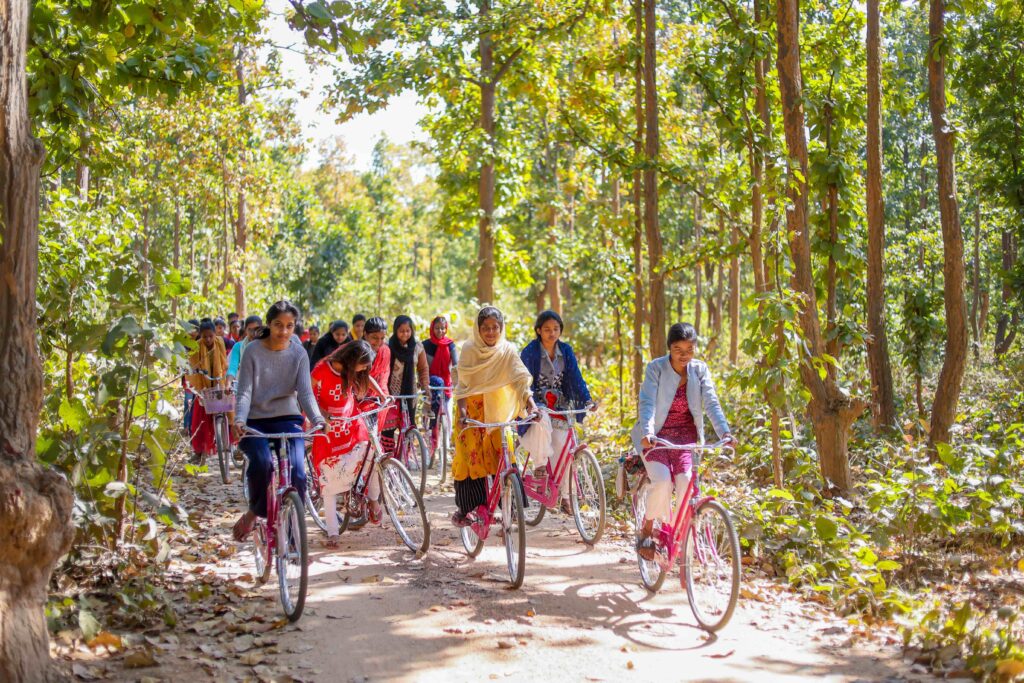
Vision:
Lotus Outreach and White Lotus Trust’s long-term vision entails implementing a multi-pronged program to nurture a community of young women and girls from tribal indigenous areas in Jharkhand, India, who are historically underrepresented and oppressed. This project appeal focuses on a 3 pronged approach of:
1. Women-led rights-based services,
2. Community-oriented long-term education programs, and
3. The systemic fostering of financial self-sufficiency through water and land.
Our approach includes tried and tested innovative approaches to alleviate and dissolve systemic barriers against women and girls, with an emphasis on fostering on-ground networks to facilitate supportive and collaborative learning.
Specifically, Lotus Outreach will mobilize women in Jharkhand for gender equality by ensuring access to essential resources and training for girls whose families assume their daughters have no future besides early marriage and a lifetime of servitude and poverty. We’ll focus on fostering self-sufficiency as well as engaging and “calling in” entire communities through meaningful workshops and social engagement.
Introduction:
Jharkhand (“The land of forest”) is a state in eastern India, carved out in 2000 from what was the southern half of Bihar. It is the 15th largest state by area, and the 14th largest by population. The state is known for its rich deposits of minerals, forest land, various ethnic groups, waterfalls, hills, and holy places. Jharkhand is also known for its vast forest resources which sustain a tapestry of diverse communities, each with a unique cultural heritage. Among these are the 32 scheduled tribes (ST), recognized by the Indian Government as the most socio-economically disadvantaged groups in the country. 8 of the poorest tribal groups, further categorized by the Indian Government as Particularly Vulnerable Tribal Groups (PVTGs) also live here, in Jharkhand.
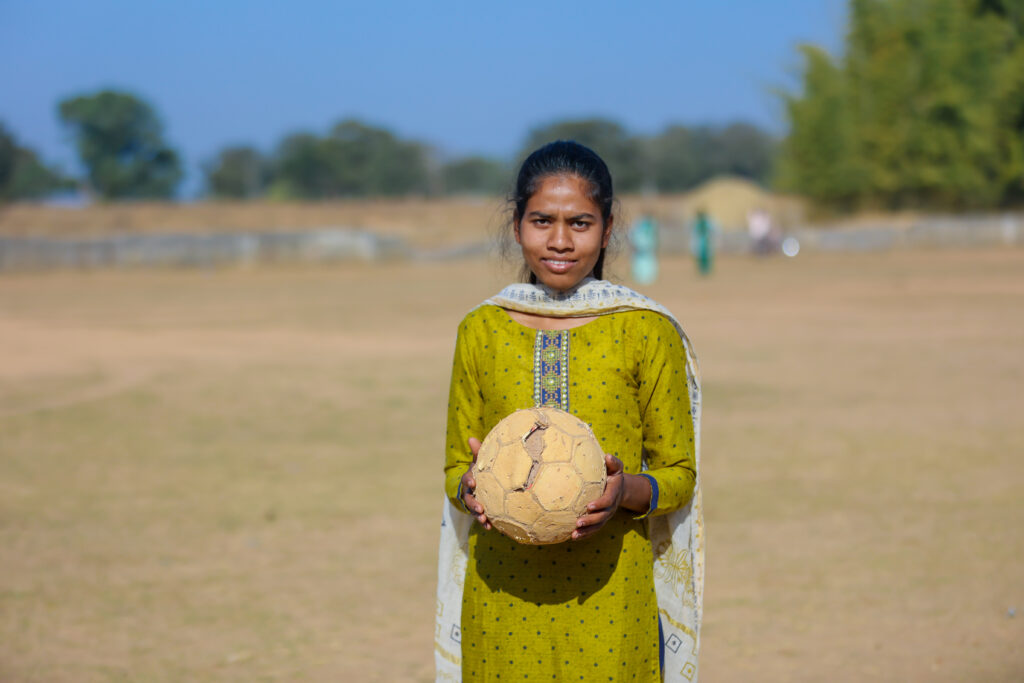
What Lotus Outreach Has Already Accomplished in Jharkhand:
Our sister organization, White Lotus Trust, has established a local partner in Jharkhand–NSVK–that has worked on the mobilization of girls and women to empower them. NSVK has done this through the creation of women’s youth groups, disseminating information, supplying training courses, providing legal assistance, and encouraging involvement in local social and political programs.
We believe that education, training, health, hygiene, and clean water directly correspond to empowerment.
- In 2022 Lotus Outreach in collaboration with our partner, Humble Bundle, launched training programs for computer education, and career counseling oriented toward post-secondary education, and implemented entry-level employment pathways for 2000 rural girls in 50 villages in two districts of remote Jharkhand.
- Lotus Outreach has also begun construction on a 40-foot-deep by 20-foot diameter ring well that will serve as a source of fresh potable water and a year-round irrigation facility for nearby farmers. Once the well is completed, the installation of a 3.5 hp solar-based irrigation water pump and piped irrigation system will enable irrigation of an area that will serve 300 farms and will solve the drinking water problem for a further 100 households. We wish to expand this project further across all of the proposed 50 villages.
- We support two computer training centers, one in the District of Hazaribagh and another in the District of Gumla in collaboration with local partner NSVK. Together, we are providing computer training to girls from remote villages in Jharkhand, India living in communities far from schools and colleges. These students are vulnerable to dropping out of school and face constant threats from human traffickers in the most notorious trafficking area in the country. Most girls using our program in Jharkhand have never had access to a computer, even those studying at the tertiary level. As computer literacy is a minimum requirement in today’s job market, our training has a profound impact on the girl’s confidence, agency, and employability, now and in the foreseeable future.
- In 2023 and 2024 we introduced 6 and 9-month computer education courses aimed at enhanced employability in general and for specific employment entry in accounting and data input positions. The 9-month ‘tally’ course (a widely use accounting package in India) training includes three months of theory with a qualified accountant and 6 months of practice using the tally accounting package. Students have consistent access, with two girls to a laptop and training 6 days a week. In this time they not only become conversant with computer literacy, but for the very first time they learn about browsing the internet, academic researching to support their studies, and creating and communicating through their own email accounts! 1,699 girls are currently using the program. These courses introduce tremendous capability and agency into these wonderful young women filled with dreams, capability, appreciation, and desire to give back and create equality and well-being in their societies.
- Career Counseling at Jharkhand was built through 28 well-established women’s youth groups and implemented at the village level. It integrates an employment agency providing employment opportunities. Career Counseling happens at our education hub in Baharonpur where 60 young women from as many as 10 villages undertake studies aimed at employment. These women focus on studying for competitive examinations, and we support them with an expansive library and mentoring resources. 450 children and youth benefit from Career Counseling and Mentoring. Children from six secondary schools receive quarterly seminars and mentoring in navigating their education path within a career goal-based framework. 60 college students attend intensive daily classes to prepare them for competitive examinations leading to employment in both government and private sectors.
- From observing the power and agency of sports and girls’ football in particular, Lotus Outreach has dived into providing sports equipment and regular competitive girl’s football tournaments which have had a deep and verifiable impact on girls’ agency, confidence, self-image, and social image and status within their families and communities. So far we have 180 girls playing football, who have received the entire kit of professional football players which includes of jersey, lower leg guard, socks, and sports shoes!
All of this has been accomplished in only two years — we are deeply grateful to our partners, including the Douglas A. Cambell Foundation and Humble Bundle for ensuring this work and impact for these young women and girls.
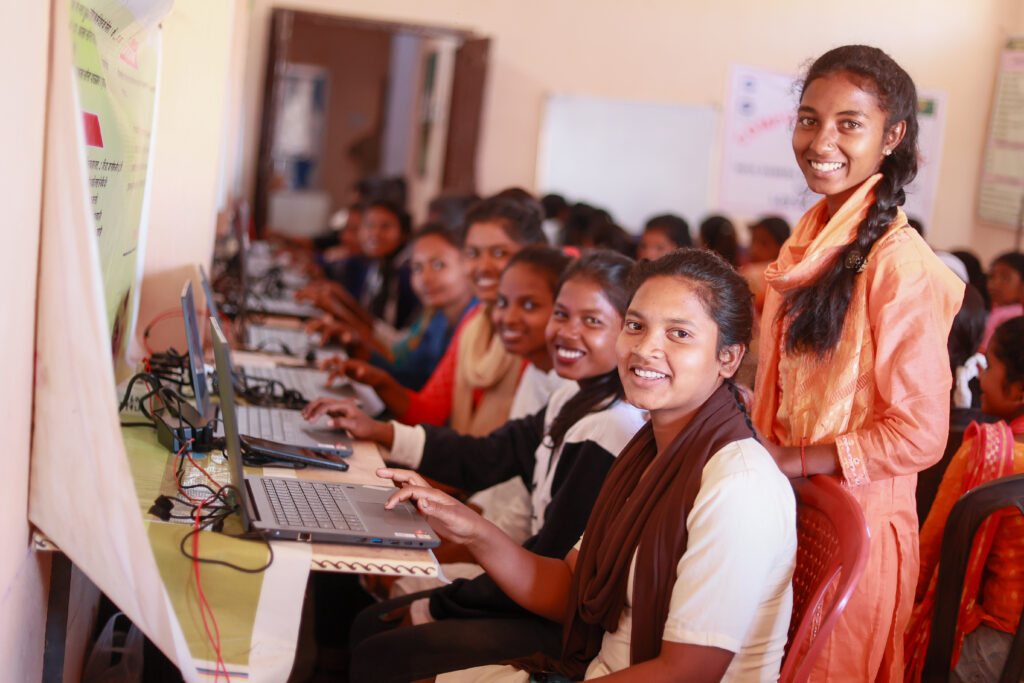
The Challenges in Jharkhand:
Scheduled Tribes as Indigenous Peoples:
Outside of India the term “scheduled tribes” might not resonate, but the concept of indigeneity does. These Indigenous Peoples are the earliest inhabitants of Jharkhand as well as the subcontinent and have occupied the land for time immemorial.
Indigenous communities in Jharkhand grapple with land rights. Historical injustices, colonial legacies, and rapid industrialization have led to land dispossession. As a result, Jharkhand’s Scheduled Tribes struggle to access basic resources like education, healthcare, and clean water. Poverty remains a persistent issue, and despite constitutional recognition, Scheduled Tribes people often find themselves marginalized or entirely left out in decision-making processes.
Therefore it comes as no surprise that the Sustainable Development Goals, India index ranks Jharkhand’s poverty situation as the second worst across the 28 states and territories of India. The NITI Aayog (National Institution for Transforming India) ranks Jharkhand last of all states in terms of achieving zero hunger. Apart from endemic malnutrition, the female literacy rate is averaged at 55.42% (male literacy stands at 76.84 percent) and is much lower in rural areas and lower again in the tribal areas where LO operates.
Poverty in Farming:
More than 75% of Jharkhand’s workforce is engaged in agriculture, however, farming only generates 20% of the state’s GDP. Despite the abundance of industrial production in India, the rural and tribal population of Jharkhand has not benefited from agricultural innovations and continues to rely on the most basic and outdated farming practices. The majority of farming in Jharkhand is mono-cropping, which erodes the topsoil and depletes the ground of its nutrients. These farmers also depend on the monsoon for watering their crops, instead of year-round irrigation. This results in a limited supply of water, and a short growing season, presenting a scenario where there is a simple solution to a devastating problem, and where simple irrigation implementation would result in a dramatic decrease in poverty.
If poverty decreases, fewer girls will be forced to stay home to farm or work for poverty wages to support their families. With an increase of knowledge in basic water and farming practices for the community, more girls would be able to attend school and mobilize to create better lives for themselves.
Human Trafficking:
Jharkhand faces issues of migration, low employment opportunities, and high incidents of human trafficking. Tribal people are especially vulnerable to these issues and lack systemic structures to support them.
In the target areas for this project–50 villages in the districts of Hazaribagh and Gumla–levels of migration and human trafficking are exacerbated by a sparse and poorly serviced education system. Children traveling discouraging distances from their rural village communities to school face high drop-out rates and are at high risk for human trafficking. Many girls aren’t allowed to attend school, simply because of the perilous journey to and from class.
Jharkhand accounts for 81.4 percent of the total human trafficking cases in India.
Education:
Those students who do make it to school despite all odds and successfully graduate, often do so without computer literacy due to a lack of school resources. Without a grasp of computer literacy, these graduates are unable to compete in today’s job market and must instead join the labor force where the cycle of poverty continues. Without education, girls in Jharkhand remain destitute, and unable to actualize any form of a brighter future for themselves and their communities.
Womens Governance:
Furthermore, while the Indian federal government has reserved 30% of local governance for women’s representation, this opportunity is yet to be taken advantage of. Girls remain largely uneducated in this region due to poverty and the danger of human trafficking. As a result, it is taken for granted that women will remain silent, and subservient.
Where We Come In:
Lotus Outreach’s local NGO in India, White Lotus Trust, has three decades of experience directly implementing and nurturing local partner NGOs across a large number of education, health, and training interventions. White Lotus Trust has implemented programs in partnership with the Government of India, taken the Education Department of Haryana to Court, and won concerning the abrogation of section 21A–the child’s right to free and compulsory education–worked closely with the National Commission for the Protection of Child Rights and represented the State Commission for the Protection of Child Rights at Haryana.
Lotus Outreach has many success stories where we have transformed communities by entirely shifting the perceived value of women and girls through step-by-step access to education and support for families on a grassroots, ground-up level. Our initiatives are community-driven, and Lotus Outreach focuses on nurturing communities of women who will be their own empowered advocates and mobilize to uplift their communities.
Social change is a slow process and we envisage a three-year cycle will be necessary to allow changes in normative behavior such as politics, gender, ageism, and established norms of power and control within Jharkhand.
Uplifting communities starts with emancipating women, and that means funding basic services like education to build a generation that is able to actualize.
If disenfranchised women are going to be active politically and in their communities in leadership roles, it starts with resources and education. With those tools, women organically become advocates in their communities. If you invest in a girl, she will blossom into a catalyst for positive change, transforming her own life and inspiring those around her to reach full potentials they never could have imagined.
LO’s 4 Goals for Jharkhand:
Creating a basis for political and economic mobilization based on centering the empowerment of women and girls in fifty villages of Hazaribagh and Gumla Districts of Jharkhand through education, and community empowerment.
- Create a basis for political and economic mobilization based on centering the empowerment of women and girls in fifty villages of Hazaribagh and Gumla Districts of Jharkhand through education, and community empowerment.
- Ensure beneficiaries have access to education, computer training, and digital information complemented by employment-targeted, career path development.
- Bring together younger and older generations of women and girls and educate them to understand and claim their legal and political rights, specifically focused on involvement in local governance and advocacy work.
- Ensure the well-being of tribal communities through training in best farming practices, building sustainable clean water access, and imparting an understanding of how to advocate and protect their land rights.
If you’re interested to learn more about the Jharkhand Project, write to genevieve@lotusoutreach.org or to discuss a significant contribution towards LO’s visions and goals in the region.
